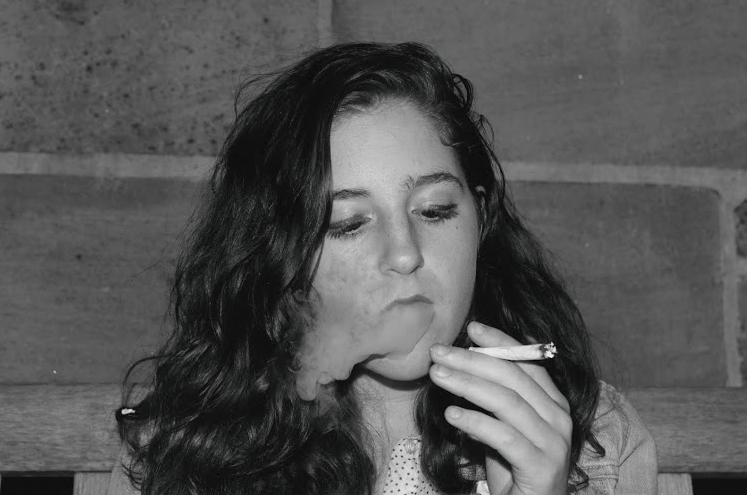
Over the next year, Yale will become the fifth of 26 universities in Connecticut to take steps toward eliminating tobacco from its campus.
On Thursday, University President Peter Salovey sent an email to the Yale community announcing that the University would become tobacco-free. Students widely criticized the timing of the email announcement, as the administration had at that point remained silent about two controversial incidents that drove campus discussion on race and discrimination. The email came around 4 p.m. on Thursday, less than an hour after a three-hour protest held on Cross Campus about issues of race and discrimination on campus. Salovey told the News he wishes the long-scheduled date of release had been changed, but still thinks the initiative is important for the health of students, faculty and staff on campus. Salovey said that the Schools of Public Health and Medicine have long been interested in establishing the initiative, which will include awareness events and smoking cessation support programs. Organized by the Department of Human Resources and Administration, the initiative will hopefully benefit both smokers and the rest of the Yale community, Salovey added.
“The idea is not just to have cleaner air for everyone to breathe, but to make it easier for people to quit,” Salovey said.
Two posts on “Overheard at Yale” — a popular Facebook page — expressed student frustration with administrative silence on two incidents: allegedly discriminatory behavior at a Sigma Alpha Epsilon party on the weekend of Halloween and a controversial email sent by Silliman College Associate Master Erika Christakis about culturally appropriative Halloween costumes. One contained a screenshot of President Salovey’s announcement and another showed an edited version of the email, altered to announce that Yale would “become a racism-free campus.”
Tobacco researchers and public health activists have applauded the announcement of Tobacco-Free Yale, with many calling it a positive step forward for the well-being of the University community.
Director of Yale Health Paul Genecin did not respond to multiple requests for comment on the nature and structure of the campaign.
In a Sunday email to the News, Ruth Canovi, director of the American Lung Association for Connecticut, said she welcomed the initiative. She said that the program would not only reduce risks to campus associated with secondhand smoke but would also prevent students from starting to smoke cigarettes, adding that college students were among the most likely members of the population to smoke for the first time.
“We know that cigarette smoking rates are higher in the 18-25 age population than in youth,” Canovi said. “In 2012, almost 32 percent of 18-25 year-olds nation-wide smoked cigarettes, while 6 percent of 12-17 year-olds smoked cigarettes. College is often a time that people pick up the habit of smoking; tobacco-free policies on our college campuses can help change that.”
Sherry McKee, psychiatry professor and director of the Yale Tobacco Treatment Clinic, said that she expects the initiative to be well-received by smokers among the student body, staff and faculty.
She noted that nicotine replacement methods are not as effective for women as they are for men but that varenicline, the most effective medication approved by the Food and Drug Administration, works equally well for men and women.
Marc Potenza, director of the Yale Program for Research on Impulsivity and Impulse Control Disorders, said that the Tobacco-Free Yale campaign marks an important step in the University’s historical attitude toward tobacco.
He noted that 100 years ago, certain tobacco brands carried the Yale name, and called the current initiative a “stepwise progression from [Yale’s] idle perspective [on tobacco-related health issues]” that has resulted from an increasing understanding of the negative health effects of tobacco consumption.
Grace Kong, an associate research scientist in psychiatry at the Yale School of Medicine who is involved with Yale’s Tobacco Research in Youth, said now is the appropriate time for a campaign of this nature due to the increased use of non-cigarette tobacco products among college students. She added that she expects the campaign will not only focus on cigarettes but other popular tobacco products including hookah, cigars, cigarillos, e-cigarettes and smokeless tobacco.
Stephanie O’Malley, director of the Division of Substance Abuse Research in Psychiatry at the School of Medicine, said that now was a great time for the implementation Tobacco-Free Yale because of recent anti-tobacco measures instituted by the city of New Haven, which include steps toward the prohibition of smoking in schools, parks and other city-owned property.
The rate of tobacco use among adults in Connecticut is 16.5 percent, according to the Center for Disease Control and Prevention’s 2014 Behavioral Risk Factor Surveillance System. The rate of tobacco use among Connecticut high school students is 13.5 percent.







